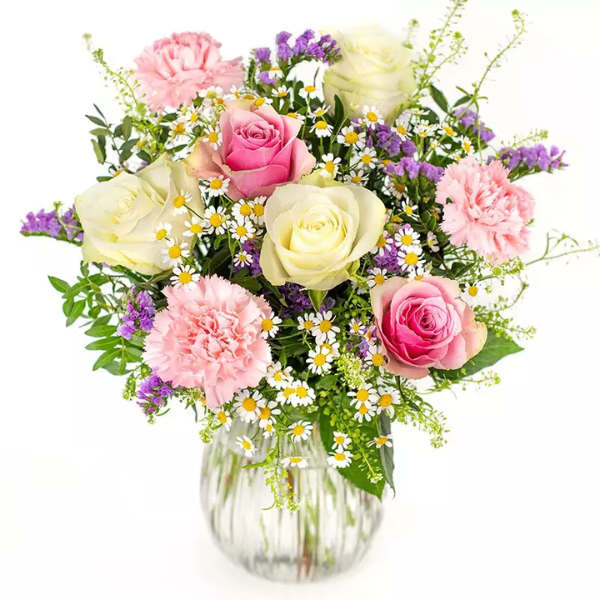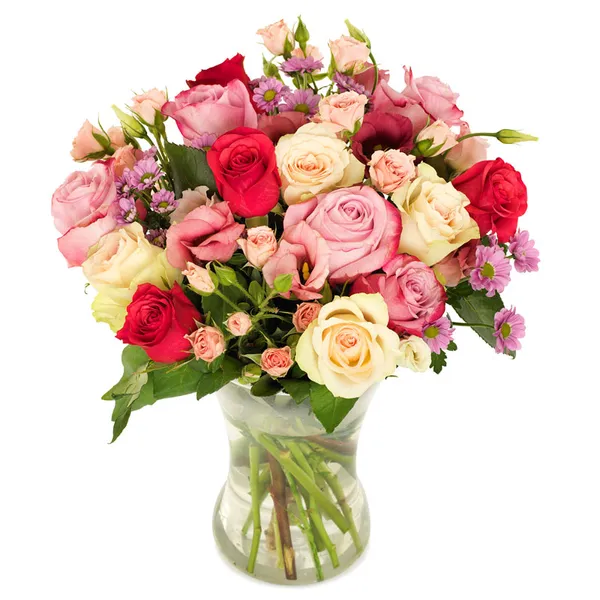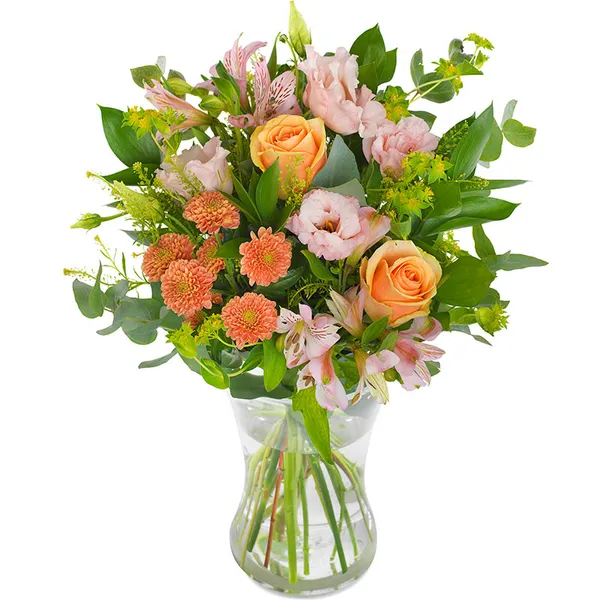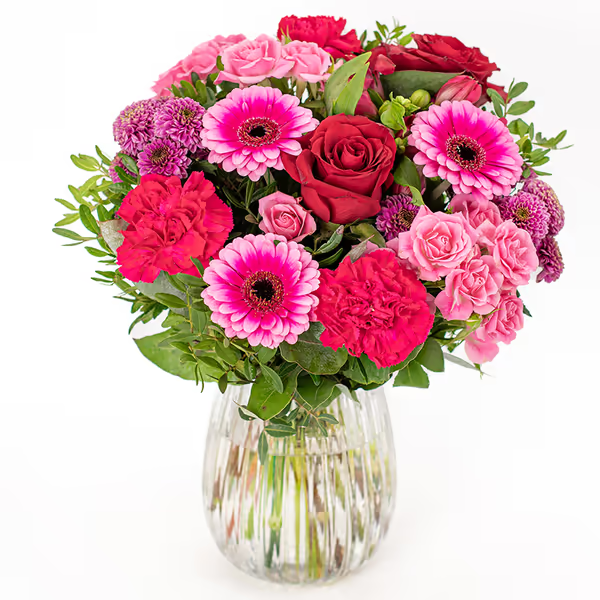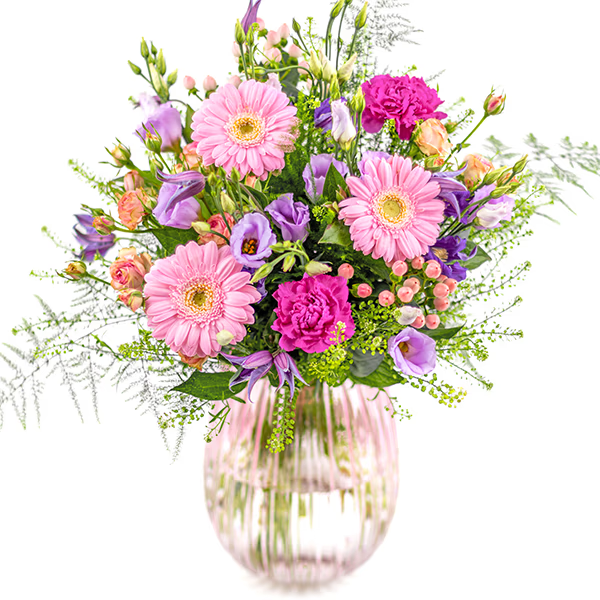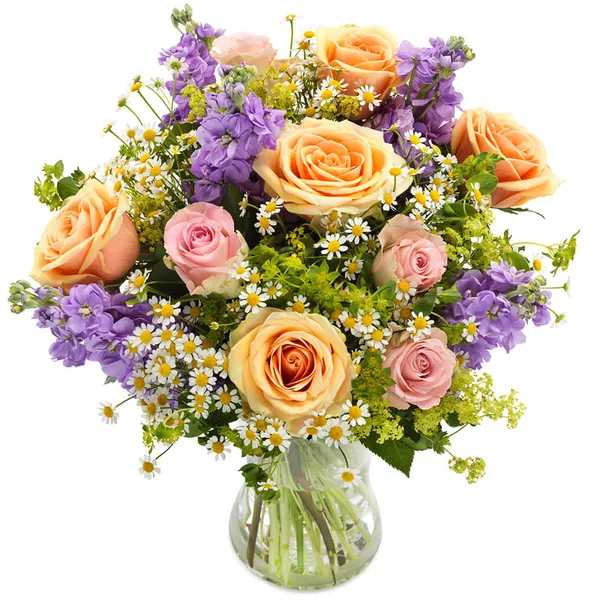Blooms of Affection: Unveiling the Reasons We Give Others Flowers
Whether it's a surprise delivery to the office or a thoughtful gift left on the doorstep, flowers have a unique way of brightening anyone's day. But why do we give flowers? Well, here at Euroflorist, we strongly believe in the transformative powers of a bouquet, and the reasons to give flowers vary as much as the flowers themselves.
Let’s explore the many reasons to give flowers and why people turn to them time and time again.
Why do people give flowers?
Flowers aren’t just decorative – they carry many meanings and uses. Spanning history and cultures, they’re deeply embedded in the rituals and traditions of societies worldwide due to their powerful symbolic value. This makes flowers a perfect way to convey emotions, sentiments, and appreciation.
So, why do we give flowers?
- Historical significance: Flowers have played a crucial role in human expression since ancient times. For example, in Ancient Egypt, they were integral to religious ceremonies and showing respect for the dead, while the Greeks and Romans crowned heroes with flowers to symbolise victory and honour.
- Cultural symbolism: Many countries have a national flower. For example, South Africa’s is the King Protea, which represents diversity, change and courage, while Australia’s is the Golden Wattle, symbolising unity, remembrance and reflection. Flowers can also play a key role in cultural events. Over in Portugal, people traditionally place yellow flowers called ‘Maias’ at their doors, windows, and balconies on the evening of 30 April to protect their homes from evil for the year ahead.
- Emotional and psychological impact: Studies have shown that flowers can have a positive effect on mood and mental health in both the short and long term, and can help us make intimate connections with others. Flowers can also be a way of expressing emotions without using words. In fact, the practice of floriography uses flowers to convey coded messages, and this was particularly popular in Victorian England as it helped people to share feelings that couldn’t be spoken aloud in Victorian society.
Are reaspns people give flowers in Poland any different?
The reasons people give flowers in Poland are generally the same as elsewhere – occasions like Valentine’s Day, Mother’s Day, anniversaries, new home or birthdays. However, there is one notable exception unique to Polish culture: name days. This is a celebration of a person’s given name, often considered just as important as a birthday.
To learn more about this tradition, visit our blog post: Polish name days – what, when, how? 10 questions about "imieniny"
It’s also worth noting that in Poland, Women’s Day and Grandparents’ Day are major flower-giving occasions, much more significant than in most other countries.
Reasons To Give Flowers
The universal appeal of flowers is clear. And as each bloom carries a specific sentiment, there’s bound to be a bouquet that perfectly matches whatever occasion or emotion you want to reflect.
Celebrating Special Occasions
- Birthdays: A colourful bouquet is a simple but effective way to brighten a birthday celebration, showing the recipient they are loved and appreciated.
- Anniversaries: Alstroemerias symbolise enduring devotion, making them perfect as an anniversary gift celebrating years of togetherness.
- Weddings: From pure lilies to traditional roses, flowers are a wedding staple.
- Graduations: Bright freesias represent thoughtfulness and are a beautiful way to express congratulations and signify new beginnings and success.
Expressing Love and Affection
- Romantic love: Nothing says "I love you" quite like a bouquet of red roses or other romantic bouquets.
- Friendship: Cheerful compositions reflect the happiness we get from true friendship.
- Family bonds: Flowers are perfect gifts for family celebrations and gifts for hosts of various parties
Offering Comfort and Support
- Grief: Lilies, often associated with purity and renewal, aim to bring comfort to those grieving, making them a traditional funeral flower in Poland.
- Recovery: Uplifting ‘get well’ flowers can send a message of hope and encouragement to someone recovering from illness or injury.
- Sympathy: Flowers can act as a thoughtful symbol of sympathy, showing solidarity during difficult times.
Improving Relationships
- Rekindling a connection: Sending flowers as a conversation starter, an attempt to re-establish ties with someone after losing touch or a fight.
- Apology: Apology flowers express genuine regret and a desire to make amends.
- Encouragement & support: Motivate someone starting a new venture or tackling a tough situation, showing we care.
Just Because
- Sharing happiness: Sending flowers to brighten someone’s day without a specific occasion
- Random acts of kindness: Spread joy to a neighbour, colleague, or even a stranger.
- Seasonal appreciation: Sending particular flower types to share the beauty of seasonal blooms, like spring tulips, summer sunflowers, autumn chrysantemums, or elegant winter amaryllis & poinsettias.
& much, much more…
Flowers are amazing & can be sent for an unlimited number of reasons, even such unusual ones as:
- Applauding resilience: Recognize someone’s strength in overcoming adversity or standing up for themselves, e.g. quitting a toxic job
- Acknowledging a "First": Expressing pride and support during their first published article, solo trip, date after a breakup, or public performance.
- Cheering up after a missed opportunity or a “failure”: Offering comfort after they didn’t land that dream job or other aspiration, as a sign that every “failure” is a lesson learnt and we keep our fingers crossed for their next attempt.

